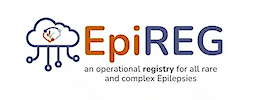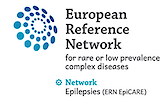Research in Our Department
The success and reputation of Bonn with regard to epilepsy research is largely based on the systematic use of scientific opportunities offered in clinical care and the close linking of scientific and clinical issues, which has led to the establishment of globally recognized workgroups both within and surrounding the Department of Epileptology. The research groups and laboratories are located at the Department of Epileptology, the Institute for Experimental Epileptology and Cognitive Sciences, the Section for Translational Epilepsy Research (Institute for Neuropathology), Life & Brain GmbH, the German Center for Neurodegenerative Diseases (DZNE), and elsewhere. Combined, they provide a unique spectrum of neuroscientific methods and questions, ranging from state-of-the-art, in-vivo technologies at the cellular level in humans and animals to theoretical-mathematical methods. Interwoven workgroups and research fields create a synergy effect which promotes the translation of findings from the laboratory to clinical implementation for the benefit of patients.
Epilepsies have revealed extraordinary insights with regard to how the brain functions. Many of the relevant findings we have made with regard to important human brain functions such as language and memory are due thanks to our research with epilepsy patients. Our Department sees itself in the decades-long tradition of closely linking together basic scientific and clinical (i.e. applied) research. This is evident from the central research topics and fields addressed by our scientific working groups.
Mechanisms of seizure development
We want to better understand how epileptic seizures develop within the brain.
- The Lehnertz workgroup is developing physical-mathematical methods for analysing the extensive, daily EEG data recorded in our clinic before, during, and after seizures occur.
- The Mormann workgroup is investigating these processes with the aid of single-cell recordings (more precisely, single unit recordings) in those patients who undergo invasive preoperative diagnostics with implanted depth electrodes.
- The Rüber workgroup uses magnetic resonance imaging (MRI) to test the chronic and acute effects that seizures have on the brain (e.g. damage to the blood-brain barrier).
- The Wenzel workgroup uses cellular resolution intravital microscopy, field electrophysiology, optogenetics, and behavioral analysis in collaboration with other groups to investigate basic mechanisms of seizure development and propagation in animal models and humans.
Seizure detection and prediction
Several studies conducted by our Department clearly demonstrate that individuals with epilepsy only notice half of all their seizures on average, while night-time seizures, in particular, often go completely unnoticed. This is problematic for objectively assessing the seizure situation and also for scientifically assessing the effects of new therapies (e.g. in clinical studies).
- The Clinical Epilepsy Research workgroup has been working intensively on developing mobile, technical systems for use in the automatic detection and registration of epileptic seizures.
- The Lehnertz workgroup uses advanced analysis methods for automatically pinpointing the location of seizures in the EEG and, one day, might eventually predict them with a high degree of accuracy.
Genetic- and immune-mediated epilepsies
In principle, any damage to the brain can lead to epilepsy. Treatment options and prognosis depend, in part, on the underlying cause. The Department of Epileptology has special expertise in the diagnosis, therapy, and research of rare genetically- and autoimmune-caused epilepsies. We are collaborating partners in several multicenter studies on the genetic causes of epilepsies, and full members of the European Reference Network for Rare and Complex Epilepsies (ERN EpiCARE).
- The Clinical Epilepsy Research workgroup phenotypes those affected with genetic and autoimmune-mediated epilepsies and studies the treatment response in relation to the cause and characteristics of the disorders (Dr. T. Baumgartner).
- The Kunz workgroup investigates the hereditary infomation of affected persons with different forms of epilepsy for gene variants.
- The Pitsch workgroup investigates the mechanisms of autoimmune mediated epilepsies with experimental methods in cell culture and animal models, and identifies new autoantibodies in the serum and liquor of people with autoimmune epilepsies (in close cooperation with Prof. Albert Becker, Section Translational Epilepsy Research, Institute of Neuropathology).
- Using high-resolution MR tomographic methods and image post-processing techniques, the Rüber workgroup is investigating how, for example, focal cortical dysplasias can be better visualized and detected, and what effects immune-mediated epilepsies have on the brain as a whole.
Biomarkers of epileptic seizures
Epileptic seizures trigger an entire cascade of pathophysiological processes throughout the entire organism which can, for example, be detected in the blood, or which can lead to measurable changes in physiological biomarkers (such as heart rate, electrical skin conductance). These so-called biomarkers of seizure events provide a deeper understanding of the underlying seizure mechanisms and can be useful for differentiating epileptic seizures from nonepileptic seizures. The Clinical Epilepsy Research workgroup investigates circulating biomarkers in blood and physiological markers using mobile health technologies.
Autonomic disturbances and premature mortality in epilepsies
Epileptic seizures can acutely (i.e. during the seizure) and chronically (through permanent changes caused by frequently recurring seizures) change the properties of the autonomic nervous system (controlling, among other things, cardiac activity, blood pressure, respiration). In turn, such changes increase the risk of dying suddenly and unexpectedly (through so-called SUDEP, or sudden unexpected death in epilepsy). Over the years, the Clinical Epilepsy Research Group has been working on seizure-associated changes in the heart, circulation and respiration, and examining questions as to how such changes can be positively influenced and used for automated seizure detection.
Imaging the brain in epilepsy
Neuroradiology is of particular importance today in diagnosing and treating difficult-to-treat focal epilepsies, and imaging methods now play a prominent role especially in the assessment and planning of epilepsy surgery. The Rüber group is developingadvanced analysis methods for very different data from magnetic resonance imaging (MRI), e.g. data on the connections between brain structures or on the size and volume of specific brain areas. The analyses are increasingly automated on the basis of machine learning or artificial intelligence. The acute effects of seizures on brain structure are also to be studied in greater detail with the aid of MRI.
Clinical studies for medication and therapy
For many years, the clinic has participated in multicenter, partly international, randomized placebo-controlled studies of antiepileptic drugs or medical devices (e.g. vagus nerve stimulator). This affects the efficacy and tolerability comparison studies of already approved drugs, but much more often that those drugs whose approval is expected in the upcoming years (so-called phase III studies). Patients have the opportunity to sample these drugs within the framework of such studies and, if successful, to continue taking them.
Complementary therapeutic procedures
The Complementary Therapeutic Procedure workgroup deals with the therapeutic approaches used for difficult-to-treat epilepsies in order to provide relief from the seizures that occur. In rare cases, seizure freedom is achieved. Recently, complimentary procedures have been used including cannabidiol in particular, as well as vagus nerve stimulation, transcranial electric stimulation (EEASE) and the ketogenic diet. Together with the Helmstaedter workgroup, this group examines the cognitive effects of reduction in the drug load, that is, the number of antiepileptic drugs taken in cases where this appears to be justified.
Consciousness and memory
Awareness is necessary in order for psychological phenomena (sensations, feelings, thoughts, etc.) to occur. In epileptic seizures, consciousness disorders and even a complete loss of consciousness can occur very frequently; these disturbances contribute significantly to the restrictions in everyday life that many sufferers experience as a result of their seizures. Even if their consciousness is "only" disturbed, very often patients cannot remember the attack; their memory fails them.
- The Fell workgroup uses invasive EEG recordings to investigate the electrophysiological foundations of thoughts and feelings, as well as of memory processes. For example, an important field of research is so-called mind wandering - that is, the preconscious wandering of one’s thoughts.
- The Helmstaedter workgroup examines the memory performance of individuals with epilepsy, before and after an epilepsy surgical procedure, as well as before and after the patient’s drug therapy has been changed. For this purpose, we developed our own tests which are currently used by many hospitals throughout Germany (VLMT, EpiTrack / EpiTrack Junior).
- With help from single-cell recordings (more precisely, single unit recordings), the Mormann workgroup investigates those processes occurring in patients who undergo invasive preoperative diagnostics with implanted depth electrodes. These processes help us become aware of certain content, meaning that we think about the content and can then also recall it later on.
Psychological aspects of individuals suffering from seizures
In psychology, the performance capability, the state of health and the personality of the individual are all examined. Neuropsychology addresses the psychological effects of brain illnesses. Epilepsy can influence the performance capability of patients and many frequently complain of memory problems, but depression and increased anxiety also frequently occur. The Helmstaedter group is responsible for the clinical-neuropsychological examination of patients and researches the psychological consequences of epilepsy at various levels. Furthermore, innovative, behavioral therapeutic approaches are also examined (for example, biofeedback/neurofeedback training with epilepsy). The research program ranges from patients with epileptic seizures to those with nonepileptic seizures.
Functional nonepileptic seizures
Up to 20% of the new patients examined do not suffer from epilepsy but rather a syncope or nonepileptic seizures (also known as functional seizures). Normally, these seizures cannot be managed with antiepileptic drugs. For these patients, very often an unfavorable psychological constellation is present– either within their personal history or an acute situation – which can provide an explanation for the occurrence of the seizures. We refer to these patients as having psychogenic (meaning psychologically-related) or dissociative seizures.
Our staff has special training in ICH GCP and the regulatory requirements for conducting clinical trials. Each study is comprised of two full-time doctors as well as two nurses.
Current Clinical Studies on Drugs and Medical Products:
BHV7000-303, a Multicenter, Randomized, Double-blind, Placebo-Controlled Study to Evaluate the Efficacy, Safety, and Tolerability of BHV-7000 in Subjects with Refractory Focal Onset Epilepsy – RISE, Phase 2/3
BHV7000-304, Efficacy, Safety and Tolerability of BHV-7000 in Subjects with Idiopathic Generalized Epilepsy with Generalized Tonic-clonic Seizures - SHINE , Phase 2/3
Beobachtungsstudie bei transkutaner Vagusvnervstimulation tVNS E, Firma: tvns technologies
- XPF-010-301, X-TOLE 2, A Randomized Study of XEN1101 Versus Placebo in Focal-Onset Seizures, Phase 3
Co-workers:
Study Nurses:
Ines Goebel
Sylke Schaffranek
Project management:
Birgitta Esser
Study Doctors:
Dr. Arthur Jordan
Dr. Randi von Wrede,
Dr. Michael Rademacher
Head of Study Group:
Prof. Dr. med. Rainer Surges, MHBA
Contact:
Clinical Outpatient Department
Tel.: 0228 287-11507 or -16912
Current, ongoing third-party funded research projects:
- European Research Council: ERC Starting Grant (2022 - 2027)
Targeting epilepsy with phototherapeutics
- Landesregierung NRW (2022 - 2026)
iBehave - To define the structure of natural flexible behaviors and their neuronal implementation
- DFG (2021 - 2025)
SFB1089 Synaptic Micronetworks in Health and Disease
- DFG (2021 - 2025)
Dissociating neuronal representations of contents and texture along the ventral visual processing stream in the human temporal lobe
- DFG (2021 - 2025)
Memory consolidation during sleep and waking state at the level of single neurons in the human medial temporal lobe
- Walter und Marga Boll Stiftung (2021 - 2024)
Bewusstseinssignale für die Intensivmedizin: Aktivitätsinduzierte Veränderungen von EEG-Netzwerkparametern zur Vorhersage der Erholung vom „Wachkoma“
- DFG (2020 – 2023)
Neuronal representation of semantic information in the human temporal lobe
- BMBF (2020 - 2023)
DeepHumanVision – Deep neural networks for understanding how populations of neurons in the human brain encode visual information
EpiCARE: a European Reference Network for rare and complex epilepsies
The Department of Epileptology in Bonn is part of the European EpiCARE network.
The EpiCARE network develops and provides highly-specialized diagnostics and care in order to improve interventions and outcomes in individuals with rare and complex epilepsies.
EpiCARE is one of the 24 European Reference Networks (ERNs) approved by the ERN Board of Member States. The ERNs are co-funded by the European Commission.
Additional information on EpiCARE can be found here.





















